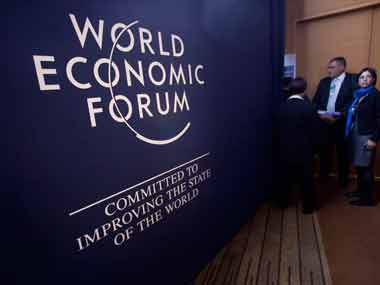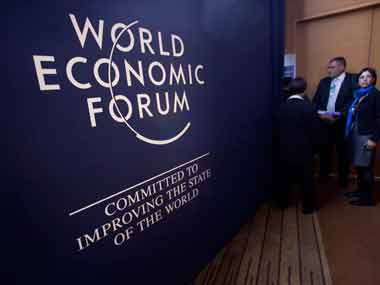In the 48hours that the creme’ de la creme’ of Corporate India met at the World Economic Forum (WEF) in Mumbai and discussed productivity, opportunity, and reforms, roughly 94 farmers committed suicides, between 400-800 attempted suicides and nearly 4000 farmers left farming altogether.
Speaking on the sidelines of the World Economic Forum to Reuters , P Sainath, the Rural Affairs Editor of The Hindu, took a sharp dig at the ongoing World Economic Forum. Sainath called the ongoing WEF an entertaining sham and questioned the seriousness of the ’exercise called the World Economic Forum,’ that has struggled to remain relevant in the economic chaos of the day.
“The WEF guys take themselves seriously. We should take them seriously, but not for the reasons they take themselves seriously. We should take themselves seriously because they have driven the policies that have caused this destruction,” he said.
Sainath laid the blame of the present economic crisis in the world on the neo-liberal, McDonald’s economics, which has been devised and propagated by institutions such as the WEF. Sainath said that three guiding principles of the world economy - liberalisation, globalisation, anbd privatisation - have overlooked the concerns of the poor and are the reasons for growing inequality across the globe.
[caption id=“attachment_130383” align=“alignleft” width=“380” caption=“Sainath termed the ongoing World Economic Forum in Mumbai a sham. Reuters”]
 [/caption]
[/caption]
“Last 25-30 years have seen the withdrawal of state from sectors that matter the most to the poor, a steady transfer of resources from the poor to the rich; you can see that in the United States, you can see that in corporate write-offs in India, privatisation of just about everything and you’ve thousands of forecasters, academics and journalists buying into this phenomenon of building a separate Xanadu in which they live. Planet WEF is different from the planet that the rest of the world inhabits,” he said.
He said that the only indicators for governments across the globe are growth numbers. While India grows at 7-8 percent, and the economy is marketed as buoyant and a full of opportunity, the country is failing on socio-economic indicators: India ranks 134 on the Human Development Index and 129 in the Gender Inequality Index. The country’s malnourishment rate is still among the highest in the world at 46 percent, almost twice that of sub-saharan countries. India ranks 67 in the Global Hunger Index. Hunger and malnourishment has gone up over the last 15 years, he said.
“India has the highest number of malnourished children in the world. The number of hungry people in India has gone up. Our GHI is worse than it was 15 years ago, but sub-saharan africa does not have our billionaires. The difference is stark in India,” he said.
He said that when Dr Manmohan Singh opened the economy and ushered an economic revolution in the country in 1991, he had spoken about the need for this ideological shift in economic thinking. Singh had said that drastic measures need to be taken to combat rising inflation and food prices that were affecting the poor. “Fifteen years later things are worse.”
Inequality has gone up, he stressed. The real story is the story of inequality. The difference between reality and what is being propagated is that “inequality story hasn’t seen a dip, their business story have seen dips.”
Sainath said that the root of the problem lies in market fundamentalism which is as much a religion as any other and that the media plays a role in propagating these inequalities.
“The dominant feature of mass media across the globe is that media are entirely corporate owned, he said, “There is a disconnect between mass media and mass reality and mass media today plays the ideological arm of the neo-liberal campaign. While we can celebrate the claim that 60-70 Indians have mobile phones about the same number has no bank accounts. If 20 years of liberalisation cannot put a dent on child malnourishment figures, something is wrong”
According to Sainath the only way to tackle the present economic crisis is by curbing monopoly ownerships. He quoted the US government’s decisions in early 1912 when the House of Rockerfeller was getting more powerful than the White House and was broken into seven companies, and how at the end of the war serious restrictions were brought on monopoly. And by bringing in public involvement on policy making, people are given a voice.
Terming the present policy regime in India ineffective, Sainath pointed out that we have a strong constitution in place, “There is a chapter after the fundamental rights, directive principles of state policy, if those are implemented it mandates a state to look into health, labour, employment, income, nutrition etc.” The policies as envisioned by the policy makers and corporate world are unsustainable and the present economic crisis has demonstrated it, he said
Watch the 45 minute interview with Reuters here .
)